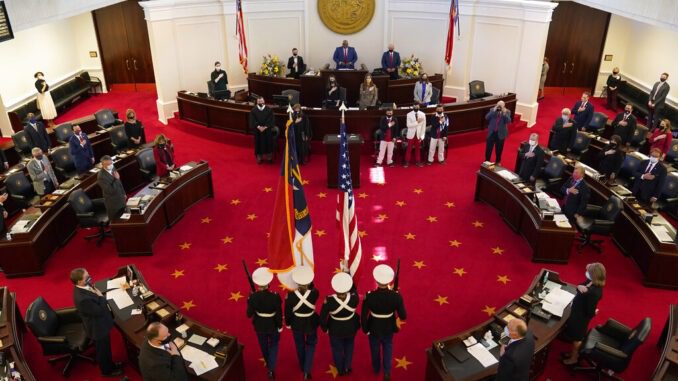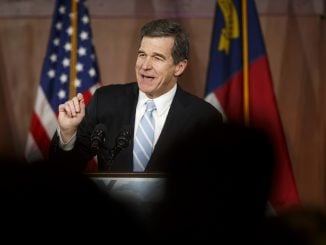
RALEIGH — North Carolina lawmakers on Thursday unanimously approved a coronavirus relief bill that sends federal money approved by Congress in December to schools for reopening, public health officials distributing the vaccine and residents struggling to pay their rent.
The proposal now heading to Gov. Roy Cooper provides $1.6 billion for education with the aim of helping get kids back to school quicker and addressing learning loss.
“The thing that does not get talked about a whole lot is what’s going on with education with the children who are not able to get that in-person classroom experience,” House Speaker Tim Moore said during the legislative session. “Guys, if we don’t get this right and find a way to make sure they’re caught up, this is something that we won’t just be paying for the next year. We’ll be paying for it for decades.”
The bill also includes $546 million in federal funds for emergency rental assistance to North Carolinians and $95 million for the state Department of Health and Human Services to assist local health officials in the distribution of the Pfizer and Moderna coronavirus vaccines.
If the bill is approved by Cooper, parents who didn’t take advantage of an opportunity last year to get a $335 check to help offset childcare costs and expenses associated with remote learning would have until May 31 to take advantage of the so-called Extra Credit grants. The bill extends the program that expired in the fall and paves the way for thousands of families still eligible for the direct checks to receive them.
North Carolina state senators on Thursday approved a bill requiring all 115 public school districts to offer in-person instruction to the state’s roughly 1.5 million K-12 students.
The proposal, which soon will head to the House and would then have to be signed into law by Democratic Gov. Roy Cooper, allows parents to have the option of continuing with online-only instruction.
“Let’s move with a sense of urgency,” said state Sen. Deanna Ballard, a Watauga County Republican who introduced the school reopening bill scheduled to be considered by the House next week.
The reopening bill passed by a vote of 29-16.
Republican and Democrats alike agree remote learning has widened the education gap, leaving many kids behind in terms of academic performance. Parents with special needs children have faced additional hardship in getting their kids the resources and attention that schools are better equipped to provide.
School boards would have about two weeks to reopen with in-person learning if Cooper decided to sign it into law. Sen. Don Davis, a Pitt County Democrat who works with Ballard on the education committee, unsuccessfully tried to give districts 30 days to reopen, rather than 15.
“I’m more than willing to work with you. Are you willing to work with us?” Davis asked Ballard.
“I am working with you,” Ballard replied. “I have been talking and working with you.”
Cooper this week strongly encouraged districts to reopen but opposed the bill introduced by Republicans to mandate the reopening. He instead wants local school boards to make that decision, with a preference for getting elementary school students back in the classroom.
Wake and Mecklenburg counties, which are home to the state’s two largest districts, are presently operating fully virtual but have approved plans for phased-in reopening later this month.
Guidance from the Cooper administration on Tuesday allows K-5 pupils to go back in person without having to maintain 6 feet of physical distancing.
The governor is set on Thursday afternoon to provide a COVID-19 update, and his budget director will share the administration’s emergency supplemental budget recommendations.



